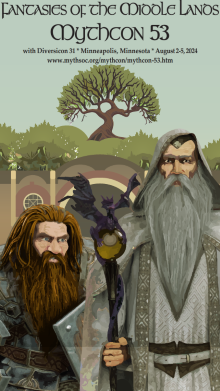Abstract
This essay introduces the concept of negative estrangement to help understand current cultural interventions into the norms of depicting fantasy races. First, this essay builds on Shklovsky’s concept of estrangement to describe the literary practice of negative estrangement, wherein artists craft “more evil” foes based on hybridized amalgamations of stereotypes to create antipathy toward a subject, be it monster or fantasy race. This practice is sometimes used in service of confronting the issue of race and racism, despite seeming to reify or rearticulate racist stereotypes.
This essay builds on Tolkien’s argument in favor of creating “more evil” foes to exemplify heroic action from Tolkien’s essay “Beowulf: The Monsters and the Critics” as part of the structure of negative estrangement. It also builds on the sense of how, as Helen Young describes, fantasy can seem safer for the cultural work of exploring issues of race due to its apparent rhetorical distance from the real world. In allowing the non-realistic reification of fantasy races, the issue of racism can be addressed substantively without audience rejection.
The work of R. A. Salvatore is productive as a case study to understand this literary practice. R. A. Salvatore has written over 30 novels focusing on the dark elf, “drow,” character of Drizzt Do’Urden. In his writing, Salvatore demonstrates a fundamental paradox between the desire of artists to craft anti-racist narratives and the need to depict “evil” fantasy races in mass market action fantasy prose. Since 2020, the Wizards of the Coast game Dungeons & Dragons has been in the process of active revision and rewriting its handling of fantasy races. Part of the purpose of this essay is to highlight the ways that the fantasy genre is continuing change its handling of the depiction or conception of fantasy races.
Creative Commons License

This work is licensed under a Creative Commons Attribution-NonCommercial-No Derivative Works 4.0 International License.
ORCID ID
https://orcid.org/0000-0003-0701-6286
Copyright held by Artist
Included in
American Literature Commons, American Popular Culture Commons, Children's and Young Adult Literature Commons, Cultural History Commons, Ethnic Studies Commons, Game Design Commons, Interactive Arts Commons, Interdisciplinary Arts and Media Commons, Literature in English, North America Commons, Modern Literature Commons


